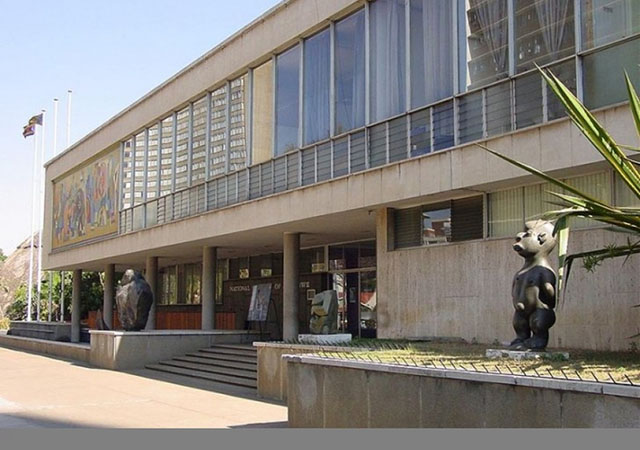Women breaking leadership barriers

Review Correspondent
Although child-bearing and rearing are by nature a female preserve, it is concurrently with these noble roles that women are showing their prowess to organise, focus and make decisions that represent the society at large. Gone is the traditional mindset that the best place for a woman is in the kitchen, pregnant or nursing a baby.
Over the decades, women have scaled to leadership positions in almost all sectors of society.
Women and Law in Southern Africa (WLSA) Zimbabwe has been instrumental since its inception in 1989, in contributing towards a conducive environment for women to take up leadership positions.
This has been done through continuous advocacy for gender equality laws and legal empowerment of women from grassroots communities to national level.
Through this advocacy, in conformity with the Zimbabwean Constitution (Section 17), which promotes gender balance between men and women in leadership and decision making, we now have female Chiefs, a position that was previously a preserve for males.
Challenging socio-cultural practices that discriminate against women continues to be the focus of WLSA Zimbabwe.
With funding support from the Norwegian People’s Aid (NPA), we have been implementing a project on, Using Constitutionalism to increase women’s participation in leadership and decision making positions since 2016.
The project whose implementation is largely in Murehwa District has been set to influence the national participation of women.
The project has resolved to profile female aspiring for Parliamentary seats across all political divide and women in decision-making.
It is therefore WLSA Zimbabwe mandate to continue to contribute to equal and improved women’s participation in the democratic space of the country’s politics and decision making.
Chido Madiwa-Tsinakwadi
Mutasa North Constituency
Manicaland Province
As women continue to battle for political space where decisions are made, Chido Madiwa Tsinakwadi, is one of the 19 determined women who secured seats in the ZANU-PF primary elections.
She won the fiercely contested Mutasa North Constituency seat in Manicaland Province.
Born and raised in Mutasa, 49-year-old Tsinakwadi comes from a polygamous family.
Her father sired 25 children from six wives.
She attended Bonda Girls High and proceeded to the University of Zimbabwe, where she did a management course.
Since then she has occupied various positions from being a lecturer at Mutare Polytechnic, Administration officer, Gender Principal Officer and Head of Department in Manicaland under different ministries.
A mother of three, Tsinakwadi is the current Provincial Development Officer and former Director of Gender in the Ministry of Women Affairs, Gender and Community Development (MWAGCD) Manicaland Province.
She is a holder of two Master’s Degrees in Public Policy and Governance and Applied Community Change and Conservation.
Her political career was born after she realised that women were not in decision making. Speaking in an interview in Harare, Tsinakwadi said, “As I interacted with people and as I was working, I discovered that the political arena is the only platform where my voice can be heard. As I worked there were certain limitations and regulations that could not allow me to say what I wanted to say but in politics you can create a conducive environment not only to yourself but to people who are disadvantaged.”
As a community development worker for the past 25 years, she had been advocating for the empowerment of women and gender justice.
Speaking about the primary elections, Tsinakwadi said, “It was not easy as I thought, because you can be threatened, harassed and it needs someone with a thick skin. My open door approach and building a relationship with the electorate, is why they made me their preferred choice.”
Tsinakwadi admits politics demands one to have a lot of energy, alert, aggressive and to be confident; most importantly to be knowledgeable to political and electoral processes.
She said, “By nature I am very aggressive and this aggression can only work in politics, you cannot be aggressive when there is a piece of paper regulating you.”
Tsinakwadi explained that her appreciation of policy issues and desire to participate in politics was largely inspired by her studies in public policy processes and governance.
Tsinakwadi believes that years of working with women have fully prepared her to be a parliamentary representative for her constituency. She feels that she is empowered on the basis that besides her policy qualification, she is already driving the development agenda.
“I saw myself winning, for me it was different because I am an empowered woman and have been driving the gender agenda. I am an example to other women and they could say if I could do it then they can also do it.”
She sees the general elections where she will stand against other parties as a walkover.
“I have done my work in terms of convincing the electorate, which I started working on a few years back. I believe I’m the person to facilitate development No one runs a race to lose,” says Tsinakwadi.
Her victory in the primary elections made her confident in running the race to win.
“If I get into Parliament, since I have been doing meetings with the electorate under a tree, the next five years after 2023, people should be coming to my house saying please come and represent us,” she concluded.
WLSA Zimbabwe Communication Desk
+2634253002/3 [email protected]/[email protected] ,
http://www.wlsazim.co.zw,
twitter:@wlsazim facebook: Women and Law in Southern Africa Zimbabwe .








Comments